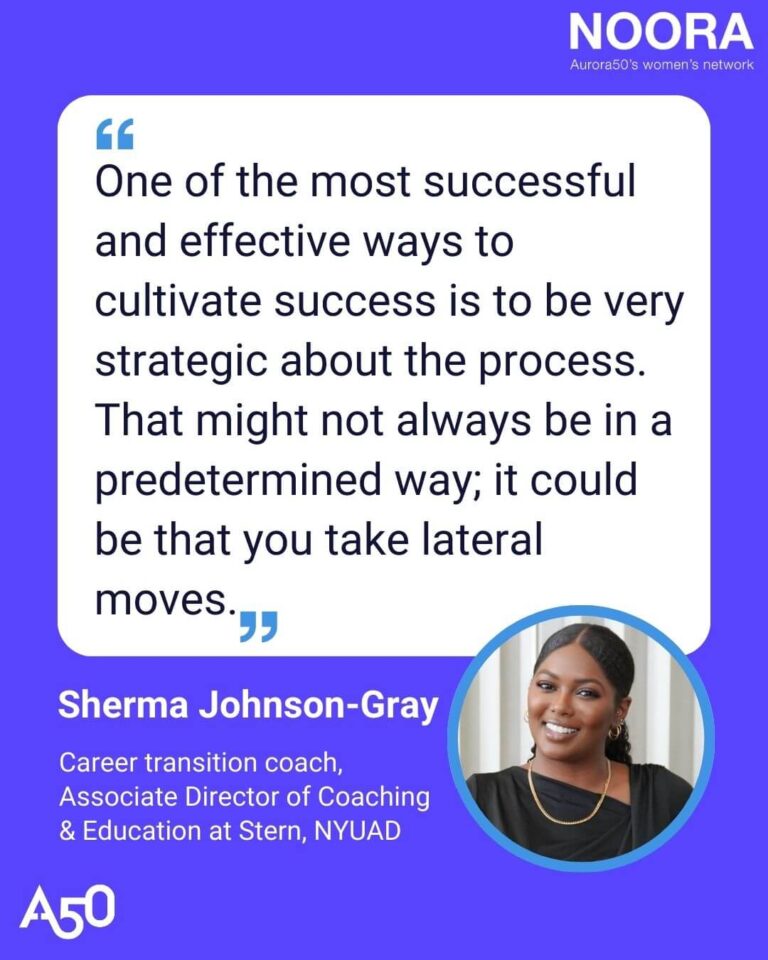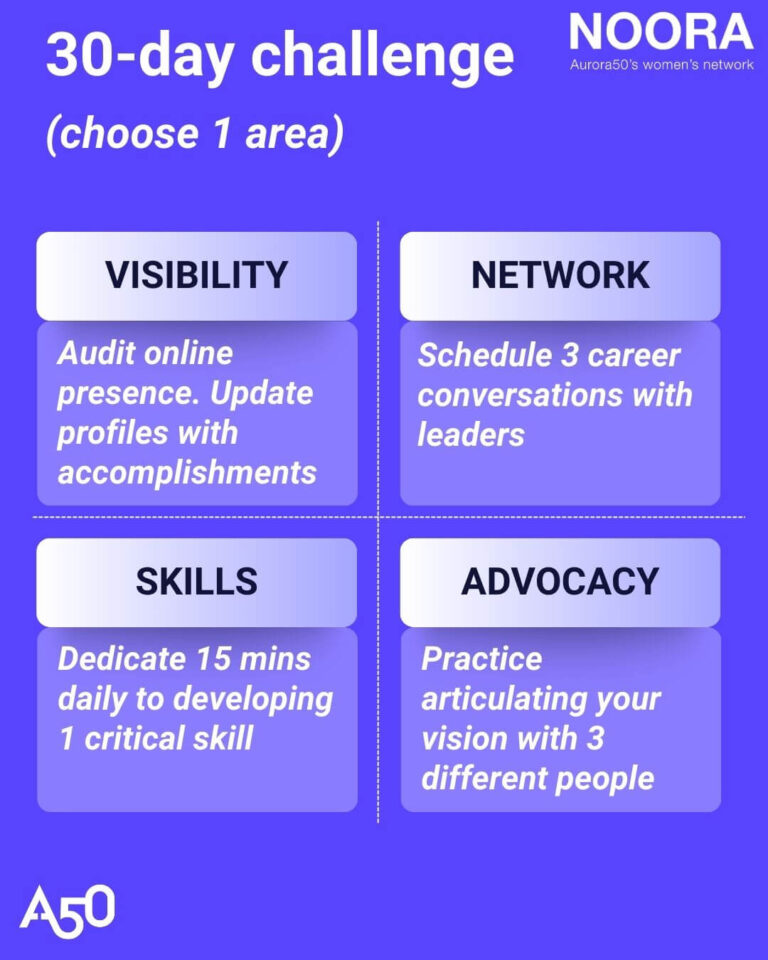This website uses cookies so that we can provide you with the best user experience possible. Cookie information is stored in your browser and performs functions such as recognising you when you return to our website and helping our team to understand which sections of the website you find most interesting and useful.

















![Blog post graphic shows Aurora50 and NOORA logos with strapline Aurora50's women's network and the text 'Career stages, barriers and strategy'. Table in graphic has three columns with headers 'Early career', 'Mid-career' and 'Senior leadership' with icons for each (an arrow going up a staircase, an org chart of three people with a cog in the middle and an arrow in a target). 1. Early career (0-5 years) You’re building credibility wile developing leadership style. • Common barriers: Being overlooked for stretch assignments, struggling to be heard in meetings. • Strategy: Prepare effectively for opportunities, seek strategic allies and document achievements to showcase competence. 2. Mid-career (5-15 years): You tend to be advancing now while balancing competing priorities. • Common barriers: ‘Sticky floor syndrome’ (over-delivering without recognition), career plateaus and balancing team/ business priorities with personal growth. • Strategy: Set value-based boundaries and build influence. 3. Senior leadership (15+ years): At this stage, you are scaling influence and overcoming isolation. • Common barriers: Isolation at the top and executive presence expectations. • Strategy: Develop an authentic leadership style and join peer mentoring circles [like NOORA]. Blog post graphic shows Aurora50 and NOORA logos with strapline Aurora50's women's network and the text 'Career stages, barriers and strategy'. Table in graphic has three columns with headers 'Early career', 'Mid-career' and 'Senior leadership' with icons for each (an arrow going up a staircase, an org chart of three people with a cog in the middle and an arrow in a target). 1. Early career (0-5 years) You’re building credibility wile developing leadership style. • Common barriers: Being overlooked for stretch assignments, struggling to be heard in meetings. • Strategy: Prepare effectively for opportunities, seek strategic allies and document achievements to showcase competence. 2. Mid-career (5-15 years): You tend to be advancing now while balancing competing priorities. • Common barriers: ‘Sticky floor syndrome’ (over-delivering without recognition), career plateaus and balancing team/ business priorities with personal growth. • Strategy: Set value-based boundaries and build influence. 3. Senior leadership (15+ years): At this stage, you are scaling influence and overcoming isolation. • Common barriers: Isolation at the top and executive presence expectations. • Strategy: Develop an authentic leadership style and join peer mentoring circles [like NOORA].](https://aurora50.com/wp-content/uploads/2025/05/2025_05_30_-blog-How-career-women-should-cultivate-success-strategically-career-stages-1-768x960.jpg)





